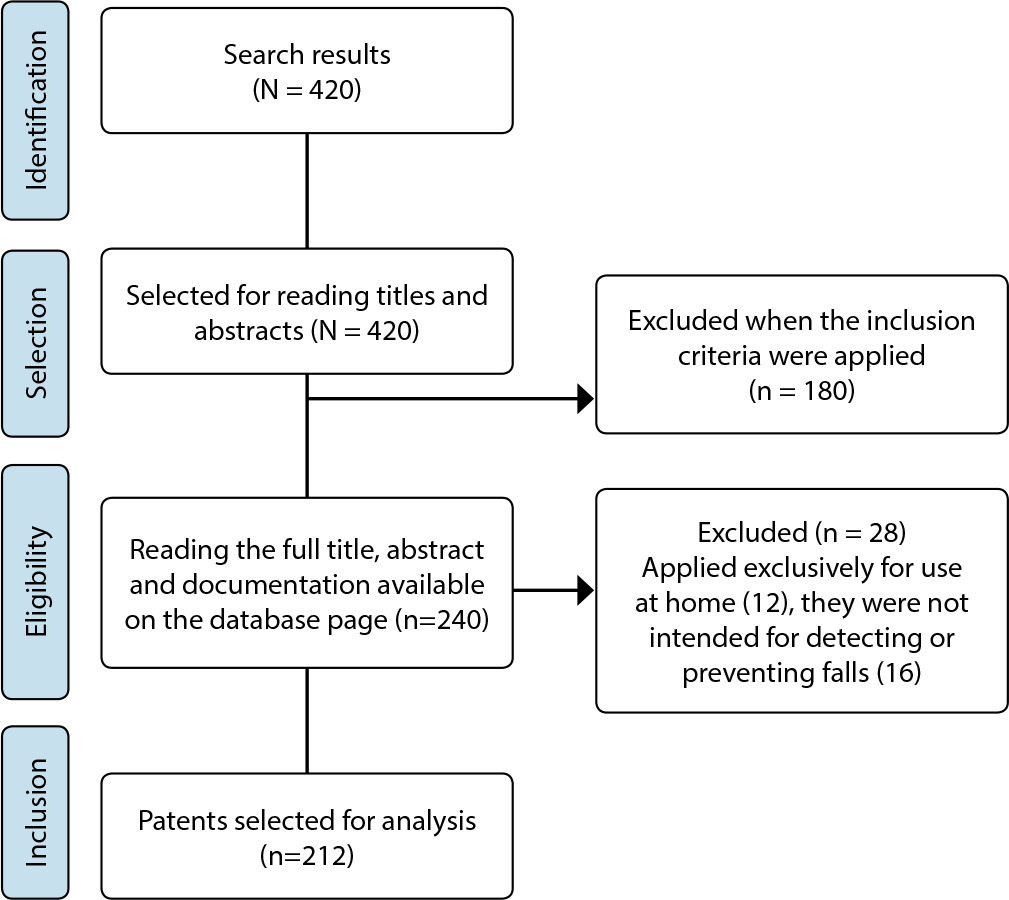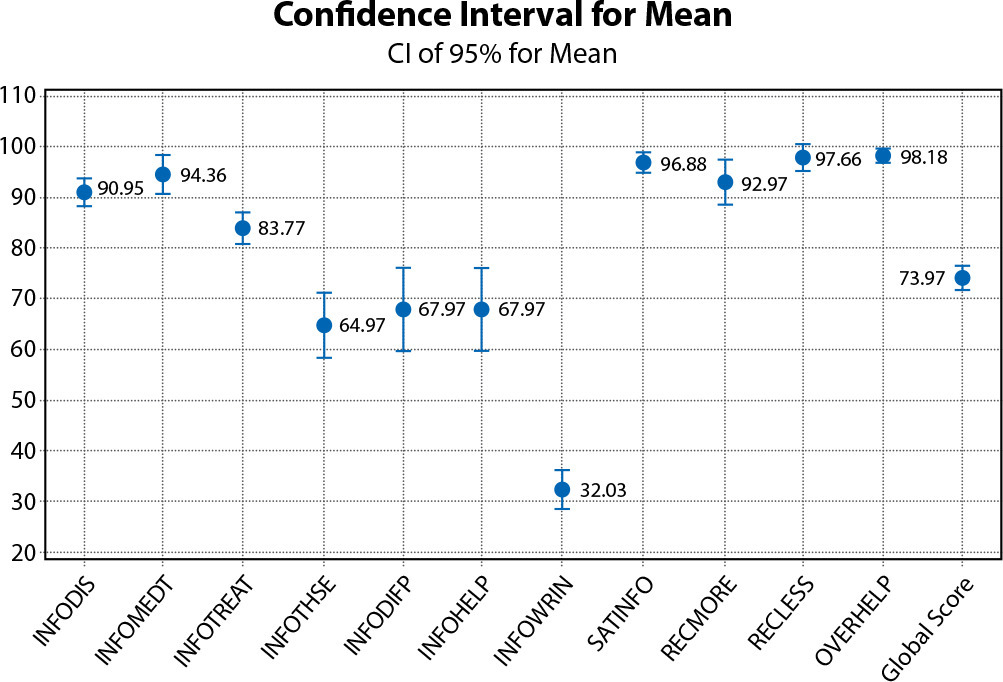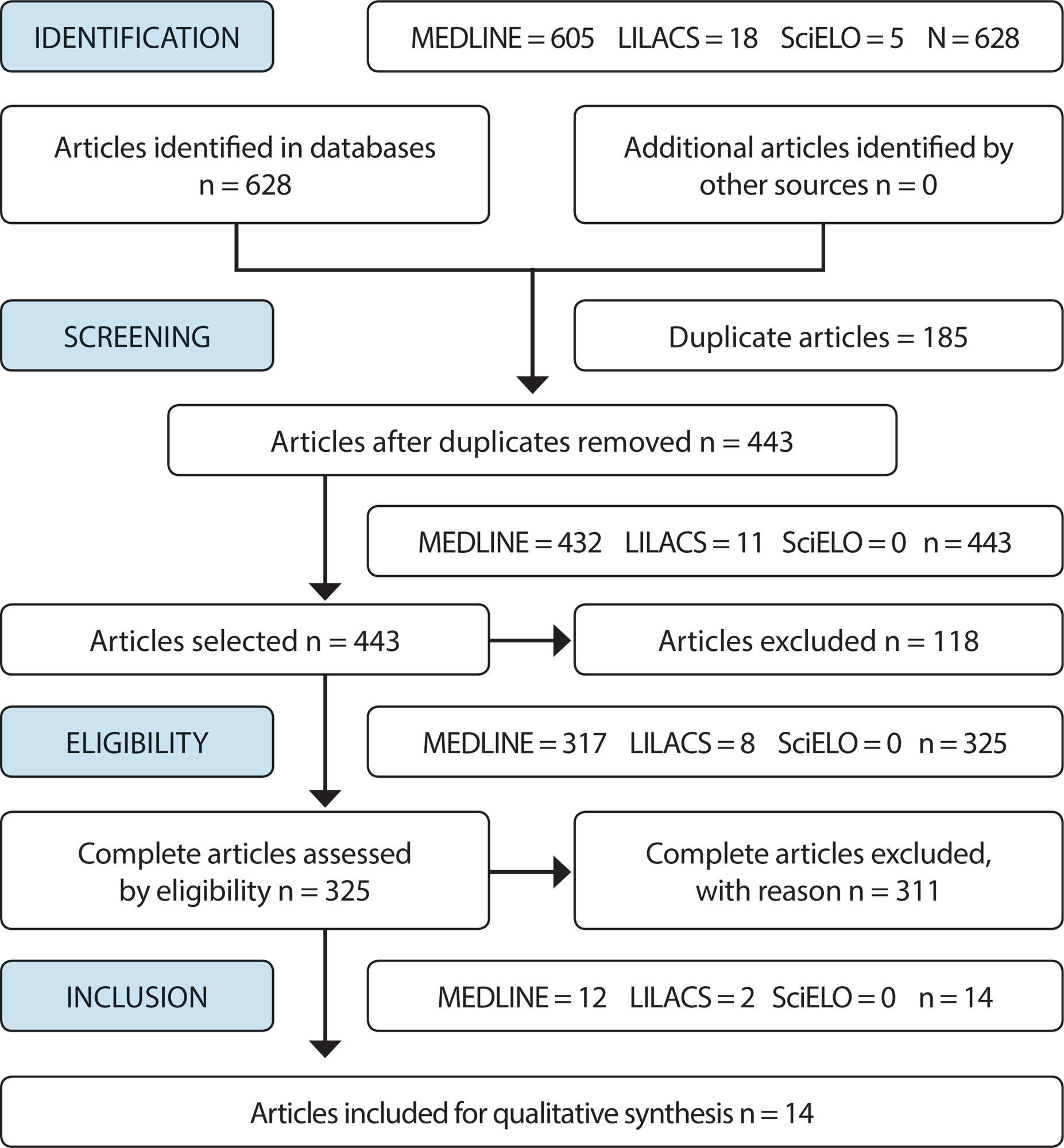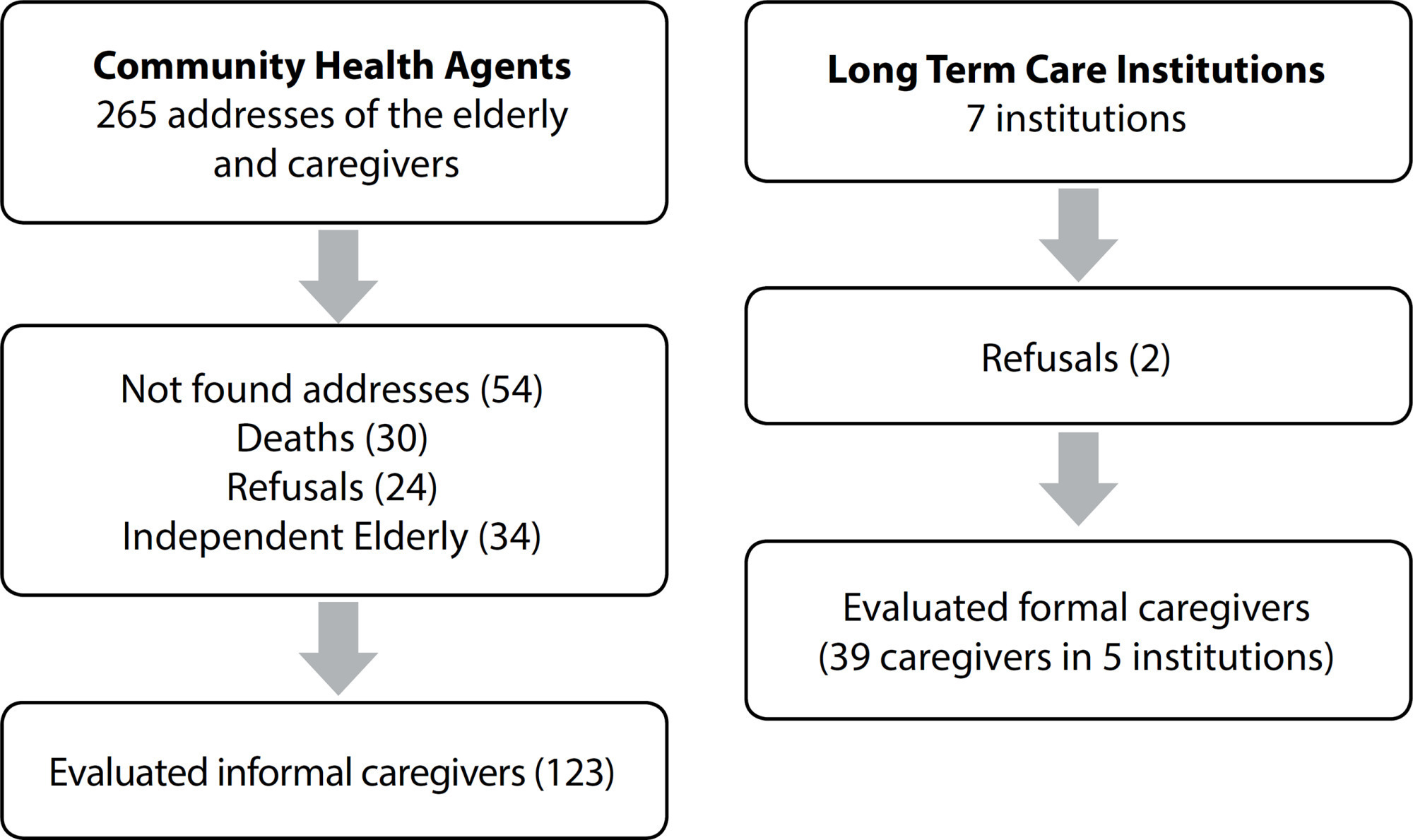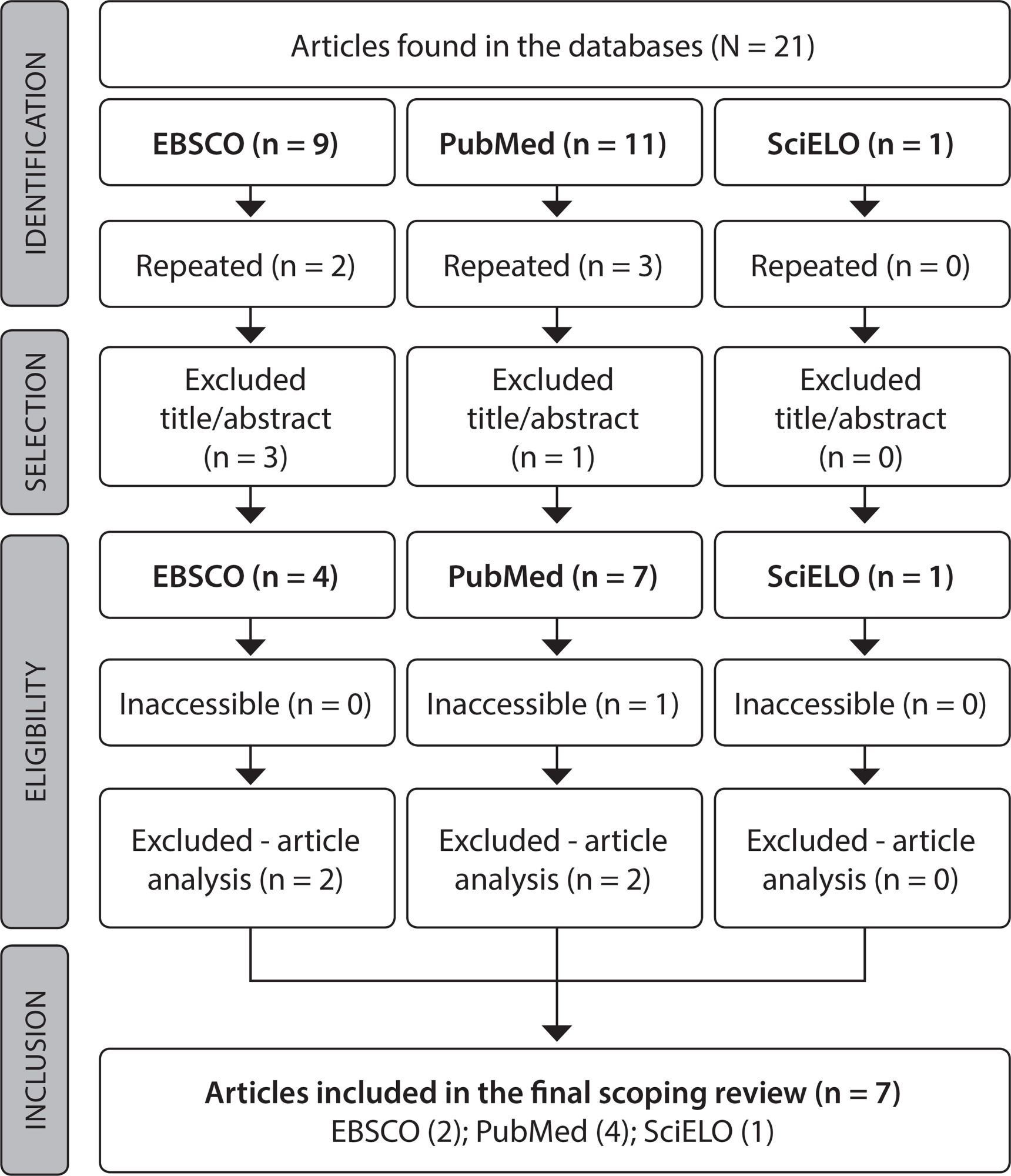-
RESEARCH01-01-2017
Therapeutic nursing care: transition in sexuality of the elderly caregiving spouse
Revista Brasileira de Enfermagem. 2017;70(4):673-681
Abstract
RESEARCHTherapeutic nursing care: transition in sexuality of the elderly caregiving spouse
Revista Brasileira de Enfermagem. 2017;70(4):673-681
DOI 10.1590/0034-7167-2016-0256
Views1See moreABSTRACT
Objective:
To understand the transitions experienced, and the conditions and expected response patterns to changes in sexuality of the spouse-caregiver of the elderly, during progression of the dementia process.
Method:
A qualitative research study, conducted at the neurogeriatric clinic between May of 2014 and May of 2015. An intensive, individual interview was administered to 12 elderly caregivers. Thematic content analysis was applied, using the theoretical model of Transition Theory.
Results:
Seven categories emerged, involving relationship and conjugal sexuality; disease repercussions; care and professional approach; attitudes, beliefs and social imagery of sexuality and care; family relationship and redefining of sexuality.
Final considerations:
Family development and marital life, the aspects of formation and development of sexuality, the specifics that involved living and caring for the other were understood, with successive events and changes influenced by old age, dementia, beliefs and social imagery.
PlumX Metrics
- Citations
- Citation Indexes: 6
- Usage
- Full Text Views: 5132
- Abstract Views: 527
- Captures
- Readers: 121
-
01-01-2017
Fundamentals and practice of care in Gerontological Nursing
Revista Brasileira de Enfermagem. 2017;70(4):671-672
Abstract
Fundamentals and practice of care in Gerontological Nursing
Revista Brasileira de Enfermagem. 2017;70(4):671-672
DOI 10.1590/0034-7167.2017700401
Views0Intense social, economic, political, cultural, environmental, epidemiological, and demographical transformations, coupled with accelerated technological innovation, have significantly affected life in society, requiring people to reflect about the conceptions of human nature itself. This context of transformation has incentivized individuals to value technological advances and the construction of more autonomous, global, and unstable human relationships, outlining […]See morePlumX Metrics
- Citations
- Citation Indexes: 3
- Usage
- Full Text Views: 4101
- Abstract Views: 22
- Captures
- Readers: 14
-
01-01-2017
Fundamentos e práticas do cuidar em Enfermagem Gerontológica
Revista Brasileira de Enfermagem. 2017;70(4):671-672
Abstract
Fundamentos e práticas do cuidar em Enfermagem Gerontológica
Revista Brasileira de Enfermagem. 2017;70(4):671-672
DOI 10.1590/0034-7167.2017700401
Views0As intensas transformações sociais, econômicas, políticas, culturais, ambientais, epidemiológicas e demográficas, em conjunto com as aceleradas inovações tecnológicas, têm afetado significativamente a vida em sociedade, exigindo que as pessoas reflitam sobre as próprias concepções da natureza humana. Esse contexto de transformações tem estimulado os indivíduos a valorizar os avanços tecnológicos e a construção de relações […]See morePlumX Metrics
- Citations
- Citation Indexes: 3
- Usage
- Full Text Views: 4101
- Abstract Views: 22
- Captures
- Readers: 14
-
01-01-2017
The importance of empathy in health and nursing care
Revista Brasileira de Enfermagem. 2017;70(3):669-670
Abstract
The importance of empathy in health and nursing care
Revista Brasileira de Enfermagem. 2017;70(3):669-670
DOI 10.1590/0034-7167-2016-0032
Views0“In her book “Cultivating Empathy”(), Kathleen Stephany, psychologist and professor at the College of Health Sciences at Douglas College, writes about empathy, which she considers to be the basis of effective communication and one of the most important skills to be developed by human beings. Empathy is the ability to put oneself in the place […]See more -
REFLECTION01-01-2017
Clinical reasoning in nursing: teaching strategies and assessment tools
Revista Brasileira de Enfermagem. 2017;70(3):662-668
Abstract
REFLECTIONClinical reasoning in nursing: teaching strategies and assessment tools
Revista Brasileira de Enfermagem. 2017;70(3):662-668
DOI 10.1590/0034-7167-2016-0509
Views0See moreABSTRACT
Objective:
To present the concept and development of teaching strategies and the assessment tools regarding clinical reasoning for accurate practice.
Method:
This is a theoretical reflection based on scientific studies.
Results:
Comprehension of the essential concepts of the thought process and its articulation with the different teaching strategies and the assessment tools which has allowed presenting ways to improve the process of diagnostic or therapeutic clinical reasoning.
Conclusion:
The use of new strategies and assessment tools should be encouraged in order to contribute to the development of skills that lead to safe and effective decision making.
PlumX Metrics
- Citations
- Citation Indexes: 69
- Usage
- Full Text Views: 47556
- Abstract Views: 2485
- Captures
- Readers: 242

-
REFLECTION01-01-2017
Continuing education in health from the perspective of Augustine of Hippo
Revista Brasileira de Enfermagem. 2017;70(3):656-661
Abstract
REFLECTIONContinuing education in health from the perspective of Augustine of Hippo
Revista Brasileira de Enfermagem. 2017;70(3):656-661
DOI 10.1590/0034-7167-2016-0484
Views0See moreABSTRACT
Objective:
To reflect about continuing education from the perspective of Augustine of Hippo and his theories based on the construction of knowledge and the learning process.
Method:
This is a theoretical reflection study whose aim is to propose dimensions of analysis, emphasizing the history and challenges of continuing education. Such dimensions analyze the production of knowledge in Augustinian pedagogy, its historical aspects and its close relationship with lifelong education in health professions.
Results:
The results show the difficulty of continuing education to reach adequate importance in health services, and that of academia in appropriating the thoughts of renowned philosophers such as Augustine. This is a result of ignorance about the convergence of these principles and their relevance.
Final considerations:
Continuing education and Augustinian pedagogy walk hand in hand in terms of care, meeting the needs that originate from practice and that are reflected in it, challenging isolated knowledge and putting different areas of knowledge to work together.
PlumX Metrics
- Citations
- Citation Indexes: 1
- Usage
- Full Text Views: 5759
- Abstract Views: 244
- Captures
- Readers: 27
-
REVIEW01-01-2017
Influence of hormonal contraceptives and the occurrence of stroke: integrative review
Revista Brasileira de Enfermagem. 2017;70(3):647-655
Abstract
REVIEWInfluence of hormonal contraceptives and the occurrence of stroke: integrative review
Revista Brasileira de Enfermagem. 2017;70(3):647-655
DOI 10.1590/0034-7167-2016-0056
Views0See moreABSTRACT
Objective:
To identify scientific evidence regarding the influence of hormonal contraceptive use and the occurrence of stroke.
Method:
Integrative review of the literature, through database search using the descriptors “contraceptive agents“, “contraceptive devices“, “contraceptives, Oral” and “Stroke”. Original studies in Portuguese, Spanish and English, published in full and available online were included. Studies that did not answer our guiding questions and duplicated studies were excluded.
Results:
Women using combined oral contraceptives have higher risk of stroke, even with a lower hormonal dosage and different types of progestogen, regardless of the duration of use. The use of contraceptives associated with smoking, hypertension, migraine, hypercholesterolemia, obesity and sedentary lifestyle increases the chance of stroke. Contraceptive patch and vaginal ring are associated to increased risk.
Conclusion:
Use of combined hormonal contraceptives, except for the injectable and the transdermal ones, increases the chance of occurrence of the event. Progestogen-only contraceptives were considered safe.
-
RESEARCH01-01-2017
Health Conditions and Memory Performance: a study with older adult women
Revista Brasileira de Enfermagem. 2017;70(3):640-646
Abstract
RESEARCHHealth Conditions and Memory Performance: a study with older adult women
Revista Brasileira de Enfermagem. 2017;70(3):640-646
DOI 10.1590/0034-7167-2016-0529
Views0See moreABSTRACT
Objective:
to verify the correlation between health condition and memory performance of older adult women in the community.
Method:
Analytical cross-sectional study developed with 28 older adult women living in Cuiabá-MT. They answered the Mini-Mental State Examination (MMSE), and a shortened Geriatric Depression Scale (GDS-15) to screen for dementia and depression symptoms. Memory skills were assessed through Rey Auditory Verbal Learning Test (RAVLT).
Results:
The mean age was 66.36 years and 75% of the participants had educational level higher than 7 years. The MMSE mean score was 28.45. The correlations found were: educational level and immediate memory (r = 0.49; p = 0.008); delayed recall and immediate memory (r = 0.71; p < 0.001); memory recognition and immediate memory (r = 0.43; p = 0.021) and recognition memory with delayed recall (r = 0.47; p = 0.012).
Conclusion:
High scores in the MMSE and a satisfactory health perception among the participants were evident. There was no correlation between memory performance and health perception.
Search
Search in:
Nuvem de Tags
Enfermagem (930)Cuidados de Enfermagem (269)Atenção Primária à Saúde (239)Idoso (208)Educação em Enfermagem (151)Segurança do Paciente (150)Saúde Mental (145)Educação em Saúde (139)Estudos de Validação (131)Qualidade de Vida (104)Tecnologia Educacional (100)Promoção da Saúde (99)COVID-19 (91)Criança (91)Família (87)Enfermagem Pediátrica (86)Saúde do Trabalhador (86)Adolescente (85)Saúde Pública (82)Estudantes de Enfermagem (77)






